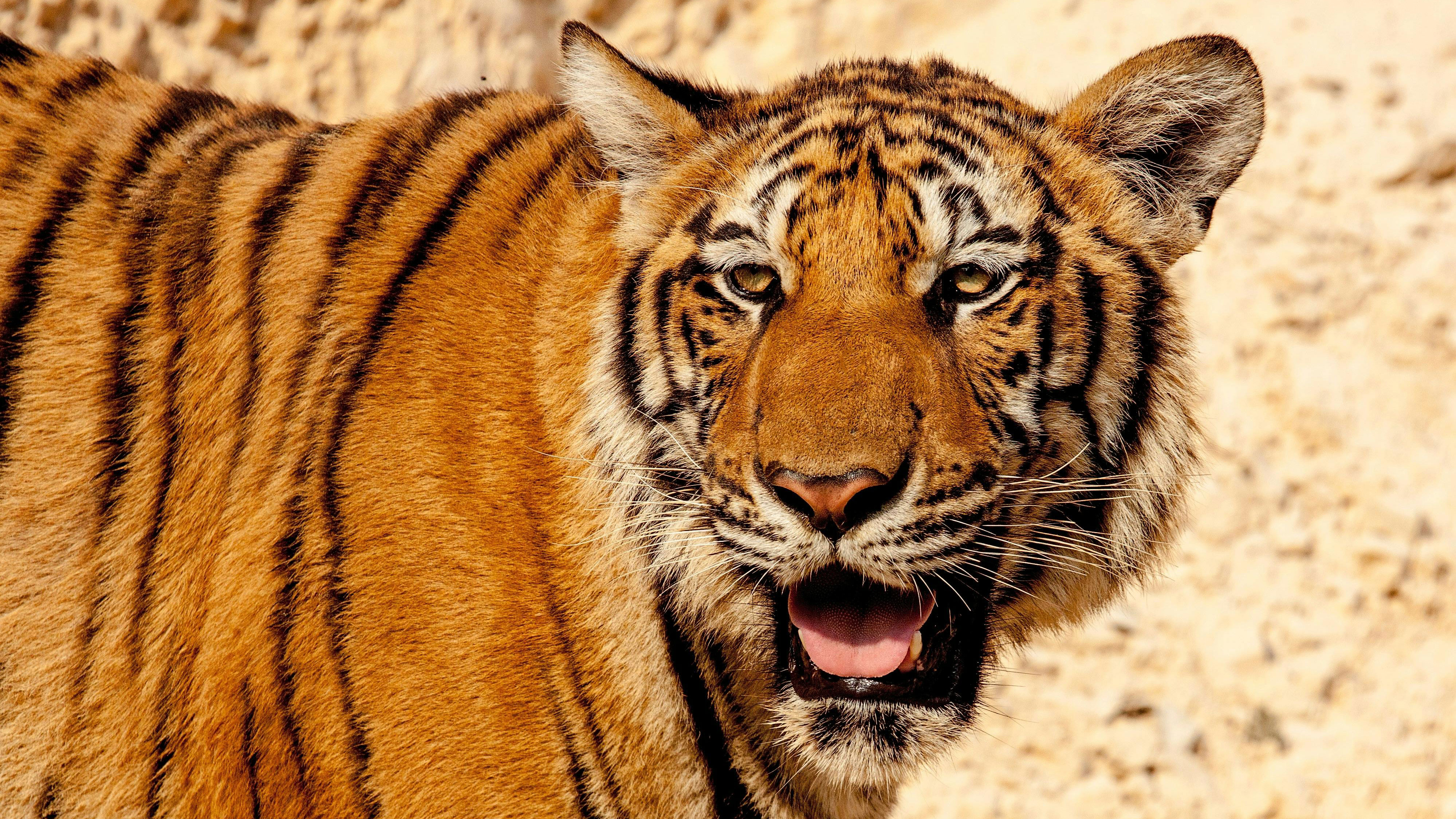A captive tiger blinded by tourists' camera flashes forced to have eyes removed and eyelids sewn shut
Firmin was rescued from an unethical Spanish zoo after a lifetime of being used for entertainment

A tiger who spent the majority of his life as an attraction at an animal park in Spain has gone blind, due to the incessant camera flashes of tourists coming to gawk at him – resulting in the need for him to have his eyes removed, and his eyelids sewn shut.
As well as consistent camera flashes from tourists, Fermin was also used in photoshoots when he was a cub.
Firmin was almost completely blind when he was rescued by La Tanière Zoo Refuge in 2019, along with his sister. Patrick Violas, the co-founder of La Tanière Zoo Refuge, which is just outside Chartres in north-central France, said: “When he arrived, Fermin was already 95% blind. He was very thin because obviously these animals… are only used to make money, not many people take care of them.”
Firmin went through his first surgery to correct his vision in 2021, but vets recently discovered “perforating ulcers in one of the eyes” and the formation of glaucomas,” Violas said.
ABOVE: Firmin's story has gone viral on Facebook
A second surgery was scheduled for January 15, but veterinarian Laurent Bouhanna concluded that it was the more compassionate decision to remove his eyes and sew his eyelids shut – a process known as enucleation – to reduce discomfort and the risk of repeat infection.
While prolonged exposure to modern camera flashes will have a minimal effect, if any, on the human eye, a tiger's eye is a different story.
Get the Digital Camera World Newsletter
The best camera deals, reviews, product advice, and unmissable photography news, direct to your inbox!
Tigers' eyes have large lenses and pupils that allow more light in, which helps them see well in low light and at night – therefore making them more sensitive to light. They also have a thick layer of nerves running horizontally across their eyes, which improves their peripheral vision.
Firmin’s tragic, yet now hopeful, story has gone viral on Facebook, with over 6,000 likes. One user made the legitimate point, “Cheer up, Firmin. Flashes are forbidden in museums, why not damage the works, why not forbid for these poor animals.”
You might also like…
If you want to take some ethical wildlife pictures, why not take a look at our guides to the best cameras for wildlife photography, the best trail cameras, and the best camera drones.

After graduating from Cardiff University with an Master's Degree in Journalism, Media and Communications Leonie developed a love of photography after taking a year out to travel around the world.
While visiting countries such as Mongolia, Kazakhstan, Bangladesh and Ukraine with her trusty Nikon, Leonie learned how to capture the beauty of these inspiring places, and her photography has accompanied her various freelance travel features.
As well as travel photography Leonie also has a passion for wildlife photography both in the UK and abroad.
